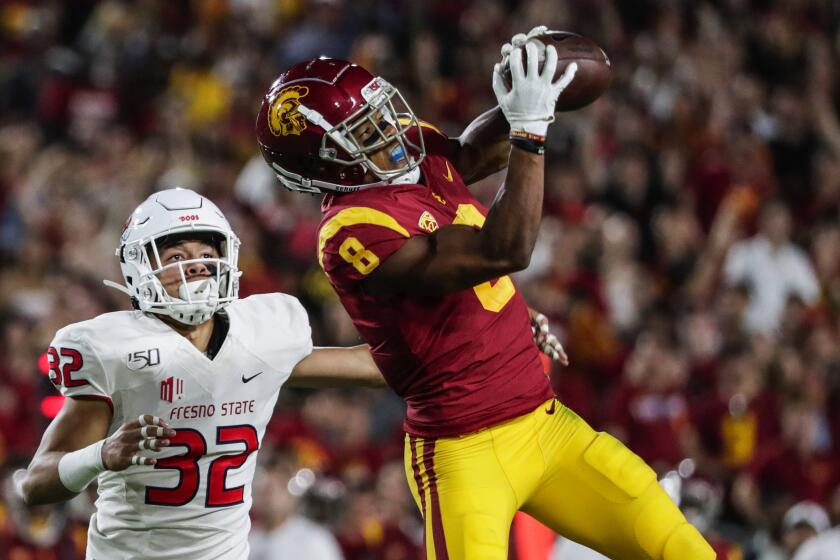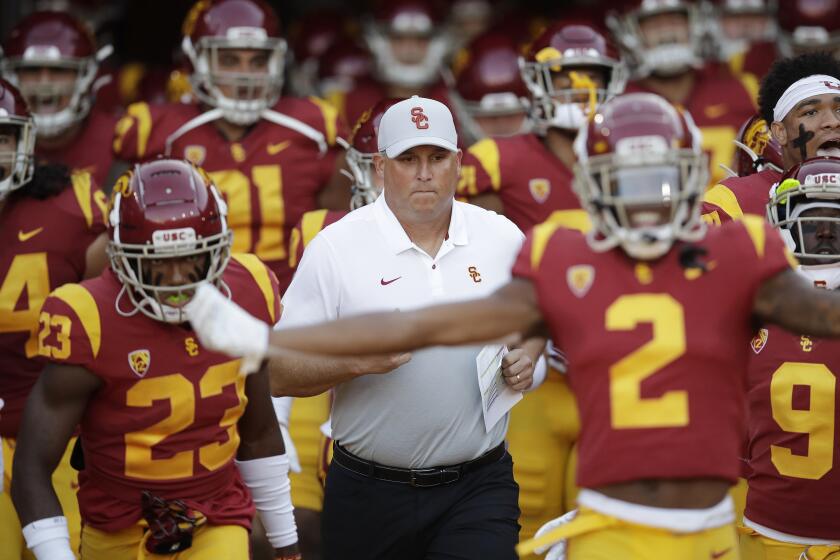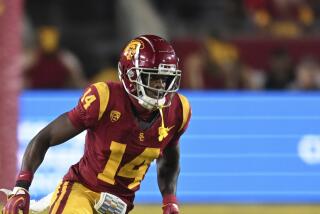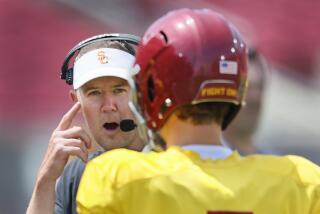Trojans adjusting to logistics of training camp during a pandemic
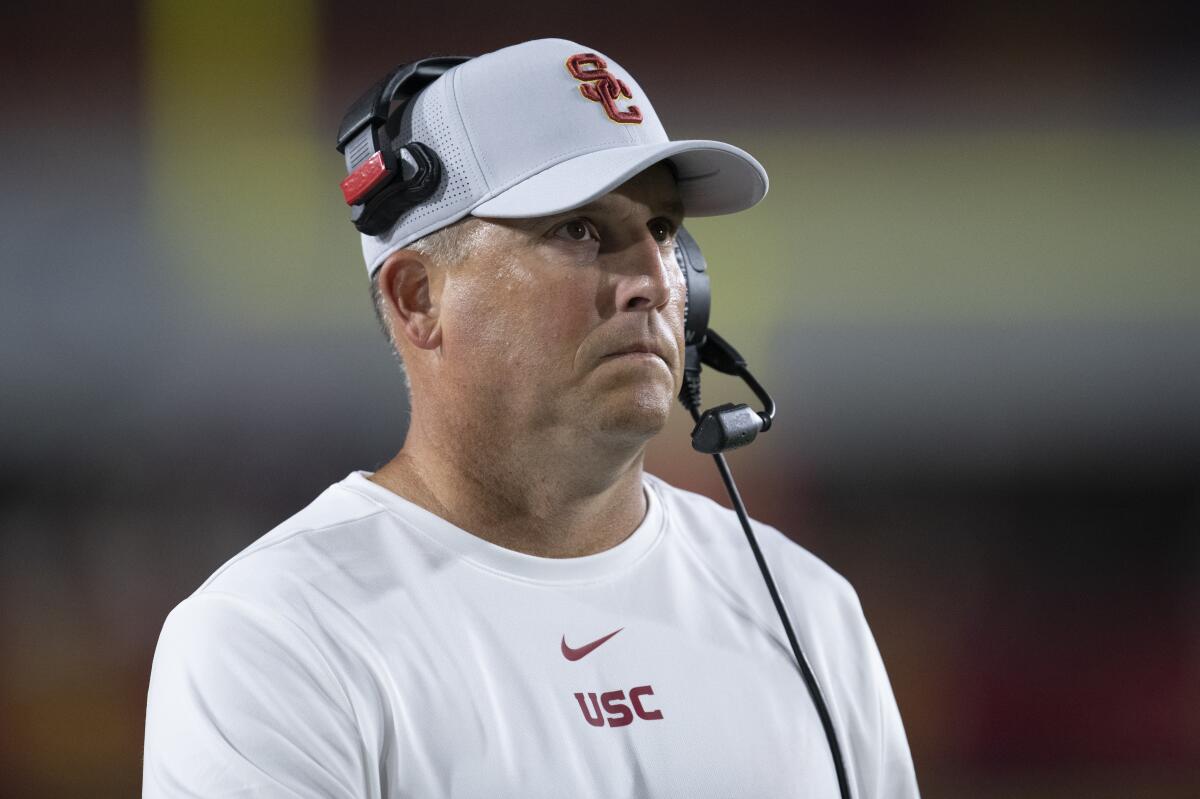
- Share via
The logistics remain a daily nightmare.
Every morning, starting at 6:15, nearly two hours are spent administering rapid coronavirus tests to every USC football player. Every afternoon, those players and staff members are outfitted with masks or gaiters for practice and, due to county ordinances, split into four different training areas across multiple fields. Every night, Clay Helton can feel just how much he’s slingshotted, back and forth, between them.
“I’m gonna lose about 10 pounds, which is probably a good thing, running from field to field,” the USC coach joked Monday.
But aside from perhaps a more trim figure, Helton says he’s noticed additional benefits from the Trojans’ unprecedented start to a pandemic-shortened season.
In particular, Helton has been a proponent of the additional two weeks afforded ahead of training camp, which mimicked the offseason training activities that have long been a part of the NFL’s offseason calendar.
A look at five players who could decide USC’s fate as the Trojans prepare for their season opener against Arizona State on Nov. 7.
“You could tell how much the OTAs ... how that helped us both mentally and physically and really prepared us for our training camp,” Helton said. “So I hope it’s something the NCAA will consider moving forward because, now having gone through it, it’s a great way to prepare for training camp both mentally and physically for these kids. It got us ahead.”
For a defense in transition, that extra preparation has been especially vital. New defensive coordinator Todd Orlando had a single spring practice to see his entire first-team defense in action before last weekend. But two weeks of walk-throughs appear to have put his new defense ahead of where it might have been otherwise.
Where USC stands in its attempt to turn the defense into a more physical, hard-hitting outfit won’t begin to be known until later this week. The Trojans begin full-contact practice on Wednesday, followed by their first scrimmage on Saturday. While Helton has committed to more physicality in practice, he said that the potential for injuries, especially after such a long layoff, makes full contact a “fine line” to navigate.
“As a head coach, you hold your breath,” Helton said. “But you have to get your kids trained in that.”
To contend in the Pac-12, let alone for a spot in the College Football Playoff, the Trojans know they can’t have any letups in a seven-game season.
The extra two months of training ahead of the season’s unusual start have given USC’s half-dozen freshmen linemen a head start in preparing for a season in which some will probably have to contribute. With players spread across different fields, those linemen have seen more repetitions, while coaches have more tape with which to evaluate their progress.
Helton singled out Jonah Monheim and Courtland Ford as two freshmen linemen who have shown “physical maturity right off the bat.”
“They’re the future of this offensive line, and we’re very, very pleased with them,” Helton said, “and we’re fortunate right now to be able to get them the work they needed to be able to progress, because … they’re going to have to help out this year.”
Running back rotation
As injuries ravaged its backfield last season, four running backs factored seriously into USC’s rushing rotation. What role those four backs will play this season remains a mystery.
Redshirt senior Vavae Malepeai, who struggled with a lingering knee injury last season, tweaked his hamstring and has been limited in camp. His injury is “going to take a little time,” Helton said.
Former USC defensive lineman Jay Tufele will continue preparing for the NFL draft as his sister, Noreen, continues to recover from a serious case of COVID-19.
The news is more positive for redshirt sophomore Markese Stepp, who remains limited but has begun to cut and maneuver on his injured ankle. Stepp was the most effective running back on USC’s offense last season, averaging 6.4 yards per carry over six games before injuring his ankle.
“He’s one that we’ll gauge over these next four weeks, but just early signs, he looks healthy,” Helton said of Stepp.
More to Read
Fight on! Are you a true Trojans fan?
Get our Times of Troy newsletter for USC insights, news and much more.
You may occasionally receive promotional content from the Los Angeles Times.

